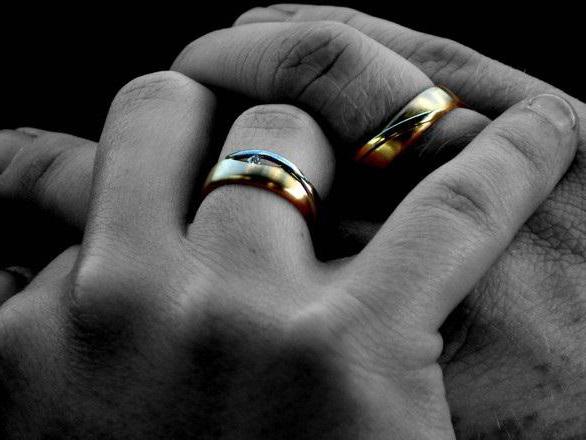A prenuptial agreement is a specific form of agreement concluded between persons who enter into marriage or are already in it. It defines the obligations and rights of spouses to property in marriage and after divorce. The conclusion of such a document contributes to the establishment of a contractual regime of property that can have differences from the legal regime. Consider the essence of the legal and contractual regime of property of spouses.
The essence of the concept
The essence of this document lies in the fact that thanks to it, future or already held spouses can independently determine their marriage property relations, as well as actions in the event of a divorce. They specify the rules and undertake to obey them.
The main goal that the spouses strive for is the desire to save themselves from material losses during the dissolution of the marriage and the negative aspects that arise during the division of valuable things. Why do we need a contractual regime for the property of spouses?
His form
A prenuptial agreement is concluded only in writing. In addition, he must be certified by a notary. It can be concluded both before the state registration of relations, and at any time during the marriage. The time of execution depends on its entry into force, the appearance of the relevant rights and obligations. If such an agreement was certified before the registration of the marriage, then it will act immediately after this procedure, performed by the registry office.
At the same time, the legislation does not contain information on how quickly after the conclusion of a marriage agreement it is necessary to register a relationship. For example, if the spouses, having lived for several years in a civil marriage, want to conclude an agreement, for its entry into force it will be necessary to legitimize their relationship. If the document was drawn up after registration, it begins to operate from the moment it is notarized. What is the legal regime of spouses' property? About it further.
What does the contract cover?
The influence of the prenuptial agreement applies both to the existing and future property of the spouses. The moment of its entry into force in the latter case will be the time indicated in the document. If the spouses decide that the contract should cover the rights and obligations that exist before its signing, then this option is also quite possible. This means that a marriage contract can influence the future tense and have retroactive effect.
The property of the spouses acquired before the conclusion of the marriage agreement is subject to the regime of jointly acquired property. Although it is worth saying that spouses can assume a change in the legal regime in this case and write it in the contract. Then the contractual regime of the property of the spouses begins to operate.
Persons planning to marry, or spouses who wish to enter into a marriage contract, turn to a notary public. This requires the presence of passports and a certificate of marriage. The power of attorney is not allowed, since the parties must be present, as the prenuptial agreement is a transaction of a personal nature only. This means that neither legal representatives nor proxies can conclude it. The document is fastened with personal signatures of future or already held spouses.If, due to physical illness, illiteracy or illness, one of the participants is unable to conclude a deal himself, then the contract at his request is allowed to be signed by another citizen. At the same time, a notarial examination must be issued indicating good reasons explaining the impossibility of the action. This will help in case of division of property.
The marriage contract is executed in triplicate. One of them is kept by a notary public, and the other two are issued to each participant.
Legal regime
Registration of marriage implies a legal regime of spouses' property if there is no prenuptial agreement. When concluding the latter, one can move away from this situation and determine separate, shared or joint property. This allows you to make a contractual regime of the property of the spouses and the marriage contract.
Joint ownership is fully regulated by family law, therefore it does not yet require any conditions. In case of shared ownership, it is important to prescribe certain property in the contract, to which the appropriate regime should be applied, to establish the signs defining the parts of each spouse (equal, depending on income, etc.).
Separate property shows that property acquired in marriage by one of the spouses becomes his personal possession, which he may dispose of in his own way. A similar regime can apply to all property (then there will be no joint property at all), and to certain types of it (here the corresponding differentiation of regimes will occur).
Mixed mode
Spouses can also choose a mixed mode, combining the components of community and separateness.
A prenuptial agreement determines all the nuances of the property of spouses both before marriage and acquired in the registered period, as well as after a divorce. If a dispute arises between husband and wife, the court does not rely on the law, but on the terms of the marriage agreement.
The contract may also affect the nature of property acquired in marriage. If the spouses wish to make the property received by one of them joint, then such a requirement is separately specified in the agreement. It is also possible to determine the property regime for future cases that will occur after the signing of the contract.
It should be noted, and another option, when the property regime is set separately for the period of marriage, and at the time of its dissolution. This is a kind of safety net for a possible further division of property related to divorce. This practice is very widespread.
Rights and obligations of spouses
When a man and a woman register their relationship, they have personal rights and obligations:
- the right to choose the name of one of them or to preserve the premarital;
- freedom in choosing a profession, occupation, place of residence;
- mutual solution of family issues;
- giving consent to adoption by the other spouse of the child;
- the right to divorce, etc.
The right of one spouse implies the existence of a duty for the second (for example, if the wife chooses some occupation, the husband must not interfere with her decision, etc.).
Let us consider in more detail the concept of the contractual regime of the property of spouses.
Property Rights and Obligations
The law distinguishes between premarital property that belonged to one of the spouses before the registration of the relationship, and property that was acquired directly in the marriage.
Property relations contain the following relations:
- property;
- alimentary.
Disadvantages of the contractual regime of spouses' property also exist.
It is generally accepted that property acquired during marriage belongs to both spouses, even if one of them worked and received a salary, while the other took care of the house. Husband and wife use and own it together, dispose of by mutual agreement.However, they have the right to determine a different regime for this property by concluding a marriage contract, which provides for a change in the legal regime of jointly acquired property.
Spouses can clarify their rights and obligations in it, determine the way to cover family expenses. However, the marriage contract should not in any way infringe on the legal and legal capacity of the husband and wife, violate their equal rights in marriage and include conditions that contradict the foundations of legislation in the family sphere. What are the features of the contractual regime of property of spouses?
When does the contract expire?
The contract ceases to be valid after the marriage is terminated, the spouses also have the right to change its position or to terminate it at first request. Like any civil law form, it can be considered invalid if there are reasons for this, prescribed in the Civil Code.
Personal property
Spouses can have not only common property, but also personal property, consisting of:
- spouse-owned property prior to marriage registration;
- property inherited or donated during the marriage;
- personal items (shoes, clothes, etc.), excluding luxury goods and jewelry.
Such property is not included in joint ownership; the spouse may dispose of it independently. But it is worth considering that when the other spouse makes contributions to the personal property of the former, the court may recognize such property as common (for example, if the husband pays for the capital repairs in the house that belonged to his wife before marriage; in this case, the house becomes joint property).
Disposition of property
The disposal of property considered to be joint property is subject to the approval of the spouses, that is, a transaction that one of them performs must a priori obtain the consent of the other. If the nature of it is unfair, the court may declare it invalid. This is to say briefly about the contractual regime of property of spouses.
It is clear that not all household property will be included in the common property or personally owned by one of them. Any item purchased in accordance with the grounds of the Civil Code may belong to other family members. That is why even a child is able to own not only the toys donated by his parents, but also a car inherited from his grandmother by will. The only question is that he will not be able to use it until he reaches a certain age.
Family relationships imply the mutual obligation of husband and wife to support each other. If it is refused, and the agreement on the payment of alimony between the spouses is not reached, you can go to court in order to regulate the property rights and obligations of the spouses in marriage.
Who has the child support?
Alimony can be recovered from a spouse who has the necessary funds for the following persons:
- disabled spouse;
- wives during pregnancy and for three years after the birth of the baby;
- a spouse who cares for a common child who is a group I disabled person since childhood.
In some cases, justified by law, one of the spouses claims to receive alimony from the other after the marriage is terminated (for example, during the pregnancy of the ex-wife and three years after the birth of the child).
Alimony is paid in a specific amount of money that must be paid to the ex-spouse every month.
We examined the contractual regime of the property of the spouses.